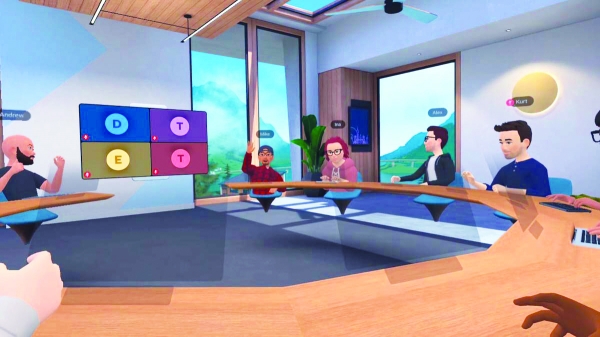
The practice of remote work/education/socializing has long been present, but the pandemic has established a completely new definition and stretched the boundaries of remoteness. After three long years, the world begins to see the way out from this convoluted mayhem. During this great transition, some lifestyles will revert back to how it was pre-COVID, others such as the Metaverse and the “remoteness” are to stay. The open secret is that the future of the Internet – the Web3 – will be built upon the concept of the Metaverse (as well as blockchain technology). The formerly-called Facebook has gone so far as to rebrand its name into Meta which could be seen as a prominent cue indicating a general shift in the Tech industry. The market for software tools and engines used to construct 3D content is already a billion dollar industry as Unity delivered 1.1 billion USD in revenue last year. And Nvidia which develops graphical processing units essential for immservie 3D graphic rendering has a market cap of 530 billion USD as of March 2022.
The current hype around the Metaverse has transformed the term into somewhat of a foreign and futuristic concept – yes, it is futuristic but not completely new. The Metaverse is still an abstract concept that no one knows exactly what it is. The best guess would be an immersive 3D virtual reality that resembles the real world in terms of photo-, audio- and sensory- authenticity. In the strictest sense, communicating through email, socializing with friends on FaceTime, or Netflix-partying are all flavors of Metaverse applications that have been done ever since the arrival of the Internet. However, the big-leap forward that companies are now trying to achieve is “the sense of presence”. There is nothing real about a grid of faces on a 2D monitor or the overlapping audios during virtual meetings. Working from home can never be as real as working in an Office: it does not have lunch with colleagues, an afternoon stroll on the rooftop, or face-to-face meetings that are more engaging.
As Lex Fridman, AI researcher at MIT, said during a recent discourse with Mark Zuckerberg, “There is a magic to the in-person conversation that the current Metaverse applications are not yet able to bring.” On the flip side, Zuckerberg believes “We will be able to bring photo-realistic avatars and spatial audio within four decades … which are two defining cues that make the physical world.” Although the prominent use of Metaverse is only limited as a means of “digital escape” for now, the visionaries at Meta and Microsoft expect “its use to cover all aspects of our livelihoods including social relationships, entertainment, work, fitness and commerce.”


